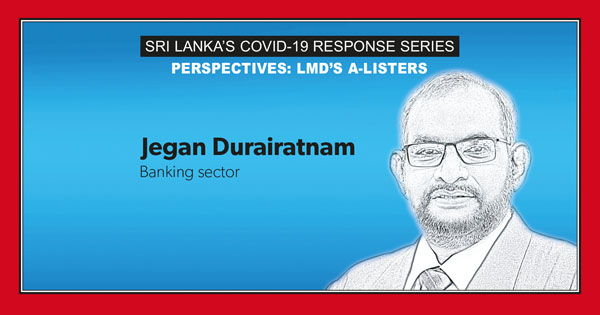A TEST OF BUSINESS CONTINUITY
A: The government has taken proactive measures to contain the spread of COVID-19 and strengthen its public preparedness, with aggressive social distancing and stringent lockdown measures implemented across the country. Increased investment in healthcare and public safety, coupled with the establishment of a special task force to effectively coordinate healthcare, containment, quarantine and contact tracing efforts are commendable steps on the part of the state.
While the government has announced financial and economic support to stimulate economic activity and support business workers (in the form of debt moratoriums, concessionary loans, extension of repayment and bill payment deadlines and weekly food assistance for beneficiaries of national welfare programmes such as Samurdhi), there is a need to address challenges in implementation of such proposals including clarity and speed of execution.
A coordinated expansionary monetary policy response from the Central Bank of Sri Lanka – augmenting the government’s relief response and other extraordinary regulatory measures introduced with the aim of supporting affected businesses and individuals, and easing pressure on financial markets – has been a step in the right direction.
While a lot has been done to sustain the economy, there may be a need to provide a stimulus much larger in scale similar to the massive economic support packages announced by other countries.
Q: In your view, how should the authorities balance the twin imperatives of safety and the economy?
A: There is an inherent relationship between public safety and economic activity – without a healthy workforce there can be no sustainable economic productivity.
While the hasty relaxation of physical distancing measures to jumpstart the economy may result in a second wave with a subsequent increase in cases, resulting in more investment needed towards healthcare and related infrastructure, the consequences of prolonged restrictions may have a sustained negative impact on the economy particularly for low income earners.
Therefore, it is pivotal at this juncture to stimulate economic activity and support business workers – particularly individuals relying on daily wages and those in the services and SME sectors.
Given the unprecedented nature of this event, I understand the practical complexities in striking a balance between public safety and economic viability. In this regard, I’m of the view that a response based on a balanced evidence-based analysis, and a participatory and consultative approach particularly with healthcare officials, will be apt at this point in time.
Q: What lessons have we – the business community – learnt from this crisis?
A: Given the volatile and evolving landscape, the need for businesses to remain resilient and agile when confronted with massive change is paramount. The pandemic outbreak has forced businesses worldwide to adopt digital solutions to an extent never envisaged possible.
The pandemic has pushed businesses into unchartered territories by testing the efficacy of business continuity and crisis management plans such as work from home (WFH) protocols. Clear communication with all stakeholders is also critical with a clear definition of roles and processes to be followed.
The opportunity for growth through collaboration and innovation is also pivotal, given that the operating models and assumptions of certain businesses maybe fundamentally changed going forward. The pandemic may act as a catalyst for certain industries in accelerating digitisation initiatives to encompass new process frameworks. Given the early adoption of digitisation initiatives, companies can leverage on expanding digital infrastructure and digitisation efforts to capitalise on this opportunity.
[wprpw_display_layout id=2]





